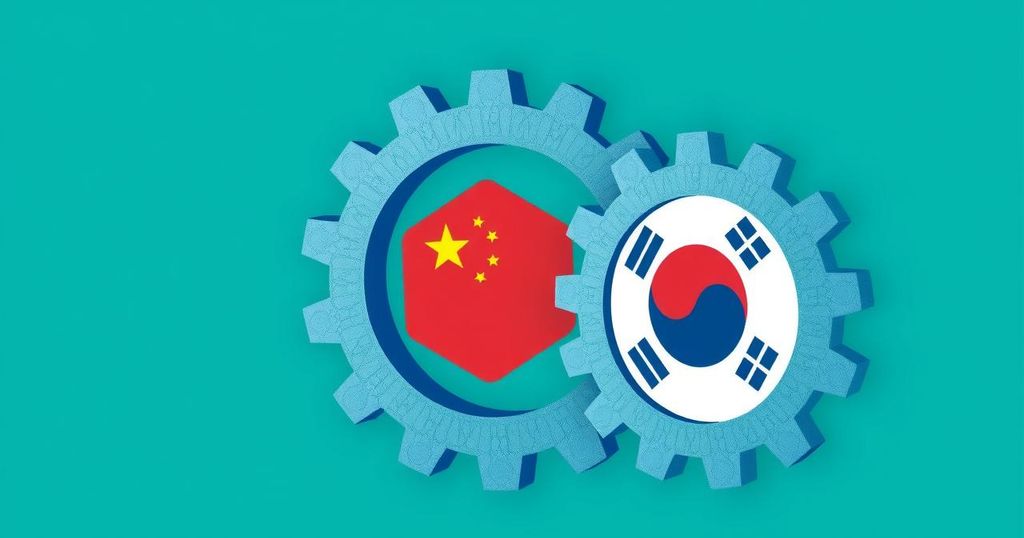Politics
COLOMBIA, CUBA, DALLAS, GANG VIOLENCE, GE, GERTRUDIS, GERTRUDIS PINEDA, ICE, IMPRISONMENT, JUSTICE, NORTH AMERICA, ORGANIZED CRIME, OSCAR, SOCIAL ISSUES, SOUTH AMERICA, TREN DE, TREN DE ARAGUA, TRUMP, TRUMP ADMINISTRATION, UNITED STATES, US, US IMMIGRATION AND CUSTOMS ENFORCEMENT, US JUSTICE DEPARTMENT, VENEZUELA, VIOLENCE
Sophia Klein
Venezuelan Families Face Despair Over Deportations to El Salvador Prison
The deportation of 238 Venezuelans to El Salvador’s notorious Cecot prison has left families in despair, highlighted by Gertrudis Pineda’s emotional struggle to find her son, Oscar. Accused of gang affiliations without due process, deportees face severe human rights concerns. Legal experts criticize the situation as unconstitutional, emphasizing the treatment of deportees and the broader implications for rights in El Salvador, while President Bukele defends the crackdown on gangs. The situation underscores a need for urgent attention and policy reform.
In the wake of the deportation of 238 Venezuelans to a maximum-security prison in El Salvador, their families remain in despair. Gertrudis Pineda, whose son Oscar was among those deported, laments the separation caused by political tensions and inadequate processes. Once a carpet layer in Dallas, Oscar now finds himself imprisoned in the Cecot, facing accusations linked to gang affiliations without any established criminal records.
Separated by borders and the barriers of a prison designed for violent gang members, Gertrudis struggles to obtain news about her son’s condition. She describes the moment she recognized Oscar in distressing footage, recounting how his fate has left her feeling as though he is “trapped in a nightmare.” Her maternal anguish is compounded by the alleged violations of human rights within the confinement facility, which many critics label a “black hole of human rights.”
The United States’ actions, carried out under the 1798 Alien Enemies Act, have been controversial, as it unlawfully removed these Venezuelans while denying them due process. Activists and local experts in El Salvador, including Napoleon Campos, assert that the deportation is unconstitutional and argue for the need to protect the fundamental rights of these individuals, stating that many have no prior offenses in their home nations or the US.
As families like Gertrudis’s fight for clarity and justice, lawyers such as Jaime Ortega work to unravel the legal complexities surrounding the deportation. Ortega hopes to negotiate their release, identifying the lack of procedural transparency in the agreements between El Salvador and the US. The situation has stirred domestic concern, with many Salvadorans beginning to realize that their country’s broader legal and human rights framework is in jeopardy.
President Nayib Bukele has defended the Cecot and its strict policies against gang violence, insisting that all deportees were accurately vetted and represented a threat to society. However, many families continue to plea for humanitarian treatment and fair trial principles, arguing that preserving human dignity should transcend conventional security measures.
Despite some positive changes in Salvadoran neighborhoods previously controlled by gangs, the crackdown has resulted in unintended consequences including the wrongful detention of innocents, further complicating the environment of fear and compliance.
As Gertrudis waits for news, she likens her plight to those experienced by Salvadoran mothers of wrongfully imprisoned men, demanding justice and the immediate return of her son to Venezuela.
She passionately speaks against the illegal actions that led to the deportations, emphasizing that if any crimes were committed, they should be addressed in their homeland. Gertrudis fervently states, “They must send them home.”
The deportation of Venezuelans to El Salvador’s Cecot prison unveils a pressing humanitarian crisis, marked by families’ despair and ongoing legal controversies. Gertrudis Pineda’s plight highlights the emotional strain on families separated by political decisions and security measures that violate fundamental human rights. As voices challenge the deportation’s constitutionality and call for justice, the situation underscores the significant implications within regional human rights frameworks and the urgent need for policy reform.
Original Source: www.bbc.com








Post Comment